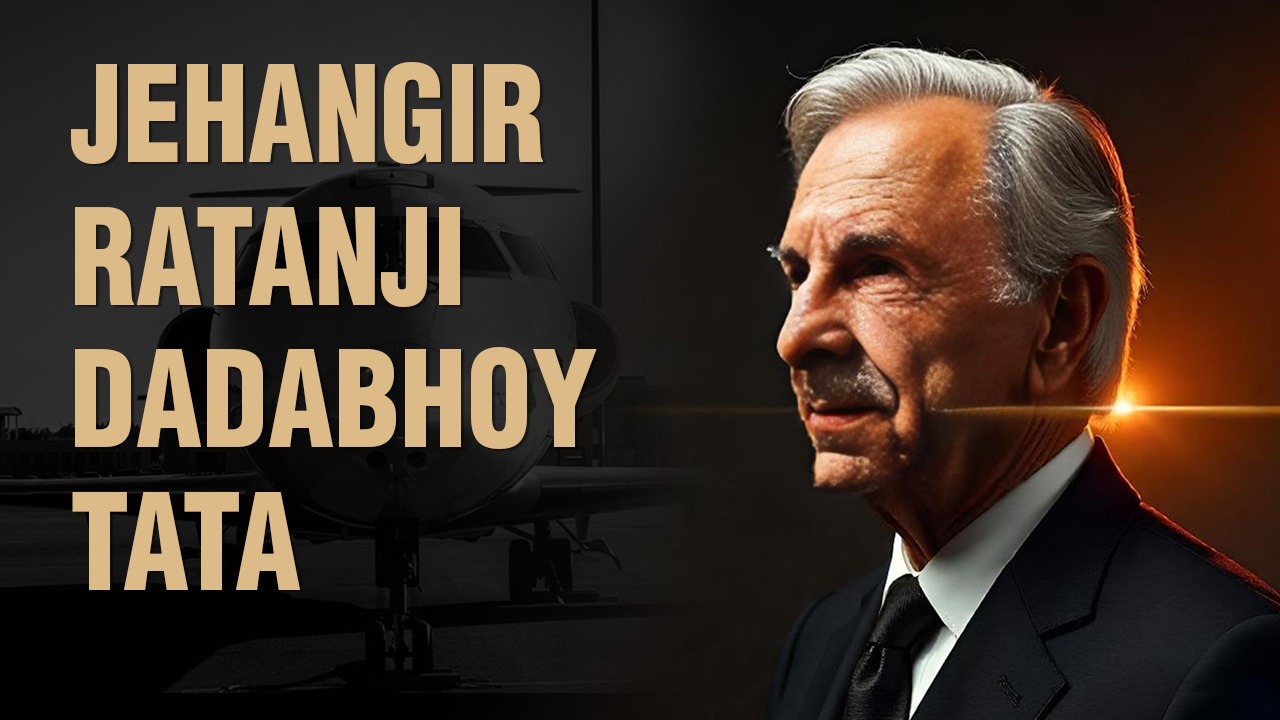JRD Tata – Full Name Jehangir Ratanji Dadabhoy Tata, A Name Synonymous With Vision And Innovation, Was One Of India's Most Famous Industrialists. Known As The Father Of Indian Aviation, His Contributions Laid The Foundation For Several Industries In The Country. Beyond His Achievements, JRD Tata Was A Man Of Principles And Wisdom Whose Guidance Was Sought Even By India's First Prime Minister, Jawaharlal Nehru. Their Relationship Demonstrated A Unique Blend Of Industrial Leadership And Political Foresight.
Early Life And Legacy.
Born In 1904, Jehangir Ratanji Dadabhoy Tata Grew Up In France And Later Moved To India. His Cosmopolitan Upbringing And Education Shaped His Global Outlook. At The Age Of 21, He Joined The Tata Group, Which Was Already Becoming The Best In The Indian Industry. By 1938, He Became The Chairman Of The Tata Group And Led It Through Transformational Decades.
Visionary Leadership In Tata Group.
Under JRD's Leadership, The Tata Group Expanded Into Diverse Industries Including Steel, Chemicals, Automobiles, Education, And Technology. He Founded Tata Airlines In 1932, Which Later Became Air India, Launching India's Aviation Industry. JRD's Focus On Innovation And Excellence Set Standards For Businesses Across The Country.
Philosophy And Social Responsibility.
JRD Believed In Business With A Purpose Beyond Profit. He Championed Employee Welfare, Instituting Progressive Labor Practices Like Maternity Leave And Accident Compensation. His Initiatives In Education, Like The Tata Institute Of Social Sciences, And Healthcare, Such As The Tata Memorial Hospital, Reflected His Commitment To Societal Progress.
Awards And Recognitions.
JRD Tata’s Contributions Earned Him Numerous Accolades, Including The Bharat Ratna, India’s Highest Civilian Award, In 1992. Globally, He Was Admired As A Visionary Who Combined Business Acumen With Ethical Practices.
JRD Tata's Relationship With Jawaharlal Nehru
The Relationship Between JRD Tata And Jawaharlal Nehru Was A Unique Blend Of Mutual Respect, Trust, And Cooperation. As India's First Prime Minister, Nehru Had The Onerous Task Of Steering A Newly Independent Nation Toward Progress. In JRD Tata, He Found Not Only A Successful Industrialist But Also A Visionary Leader Whose Insights Could Guide India's Economic Transformation.
Mutual Respect For Each Other's Roles.
JRD Tata And Nehru Shared A Common Vision For India: A Nation That Could Stand On Its Own Industrial And Economic Feet. Nehru Admired JRD's Ability To Think Beyond Profits And Prioritize Nation-Building. In Turn, JRD Respected Nehru's Idealism And Commitment To Building A Self-Reliant India. Their Relationship Was Rooted In This Shared Goal Of National Progress.
JRD's Advocacy For A Balanced Economy.
One Of The Most Important Areas Of Cooperation Was JRD Tata's Advice On India's Economic Policies. JRD Strongly Believed In A Mixed Economy, Where The Public And Private Sectors Would Co-Exist And Complement Each Other. He Consistently Stressed The Importance Of Private Enterprise In Promoting Innovation And Efficiency, Urging Nehru To Strike A Balance Between Socialism And Capitalism.
Although Nehru Was Inclined Toward Socialist Ideals, He Valued JRD's Approach And Incorporated Elements Of A Mixed Economy In India's Five-Year Plans. JRD's Insights Were Particularly Influential In Areas Such As Industrial Policy And Labor Practices, Which Had A Long-Term Impact On India's Development.
Industrial Policy And Nation Building.
Nehru Often Sought JRD's Guidance In Shaping India's Industrial Policies. For Example, JRD Played A Key Role In Establishing Initiatives Such As The Tata Institute Of Fundamental Research (TIFR), Which Laid The Groundwork For India's Advancement In Science And Technology. Nehru's Government Provided Support To Such Ventures, Recognizing Their Potential To Elevate India's Global Status.
A Frank And Constructive Relationship.
Despite Their Shared Goals, JRD Was Not Afraid To Express His Disagreements With Nehru, Especially When He Felt Policies Were Not In Line With India's Long-Term Interests. He Openly Criticized Excessive Government Control And Red Tape, Which He Believed Hindered The Growth Of The Private Sector. Nehru Appreciated JRD's Candor, Often Engaging In Thoughtful Debates That Enriched Their Relationship.
A Legacy Of Collaboration..
Their Collaboration Symbolized A Bridge Between Politics And Industry. JRD's Advice Ensured That Industrial Development Was Not Just About Wealth Creation But Also About The Upliftment Of Society. Nehru's Willingness To Listen To JRD Highlights How Much He Valued Expert Advice From The Private Sector, Even If It Was At Odds With His Own Ideology.
Conclusion:
JRD Tata’s Legacy Is Not Just About The Industries He Built But The Values He Upheld. His Advice, Even Valued By Leaders Like Nehru, Underscores His Impact On India’s Journey As A Modern Nation. Today, His Life Inspires Entrepreneurs And Leaders To Dream Big While Remaining Grounded In Ethics And Social Responsibility.



















